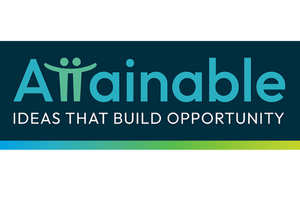Aurora partnership meets need for skilled workers in healthcare and construction
In Aurora, Colorado, home to the prestigious Anschutz Medical Campus, the burgeoning multicultural landscape reflects both opportunity and challenge. As the community thrives with a diverse and rapidly expanding population, it grapples with the urgent demand for skilled workers to support the thriving healthcare and construction industries.
The Attainment Network and its collaboration with education, industry and non-profit partners are addressing this imperative head on. Together they are working to expand equitable opportunities for learners – high school students as well as current workforce members – to acquire the education and skills they need to meet the increasing needs of the healthcare and construction sectors.
Drawing upon years of experience reshaping education-to-workforce pipelines, The Attainment Network arrived in 2022 to lend its expertise and connections at the state and national level to Aurora’s workforce development initiatives.
By providing leadership, project management, professional development, capacity building, and financial resources, The Attainment Network serves as a catalyst for collaborative action. Moreover, it fosters cross-pollination of ideas and best practices, ensuring Aurora remains at the forefront of innovative workforce solutions.
“We’ve seen such great value in their thought leadership,” said Jill Ruiter, executive director of the Aurora Public Schools Foundation. “They’re so connected with what’s happening nationally, with what’s happening around the state, with access to conferences, articles, programs, and conversations about how other districts are doing it. They’ve been really valuable in helping us navigate and learn from other folks.”
Partners make significant progress
Working together, the partners have tackled the workforce challenges head on and made significant strides toward empowering learners with skills and education they need to meet workforce demands.
Key achievements include:
- Increasing APS students’ attainment of industry credentials by 170% – and tapping into a sustainable funding stream for the training from the state’s Career Development Incentives Program.
- Doubling the number of learners participating in work-based learning opportunities by establishing better processes and systems for growing and maintaining engagement with local employers.
- Raising participation in concurrent enrollment by 23% from 2021-2022 to 2022-2023, including a 36% increase among Hispanic students.
- Developing career pathways in construction that include high-demand industry credentials in estimating and superintendent roles as well as an associate degree in applied science in construction management from the Community College of Aurora.
- Launching a Pathways in Technology Early College High School – known as P-TECH – in construction at two high schools, formalizing the collaboration between the high school, community college and the high-growth construction industry to provide the education and training students need to enter a good-paying job after high school graduation.
- Laying the groundwork for the state’s first health sciences high school, which will be built across the street from the Anschutz Medical Center.
Increasing awareness of healthcare career opportunities
UCHealth’s mission is to improve lives. “We do it in big ways through learning, healing and discovery, but also in small personal ways through human connection,” according to David Mafe, chief diversity office and vice president of human resources.
Central to this mission, UCHealth expanded its employee benefits in 2022 to include debt-free education offerings for all staff members. The education benefit aims to provide staff “the ability to be able to really ideate about what they want to become and where they want to go, with the knowledge that UCHealth is going to support them in doing that,” David said.
UCHealth leaders knew the education benefit would be a huge asset for recruiting and developing their workforce, but they needed to get the word out.
UCHealth and the Aurora Public Schools Foundation first sat down together in 2022 to explore a partnership, and shortly after Aurora Public Schools Foundation joined forces with The Attainment Network.
First order of business for the partnership was to expand general awareness about careers in healthcare as well as the tremendous value of the education benefit provided by UCHealth. They needed to get the word out to not only students and their families but also to the guidance counselors who are helping them plan for the future.
According to Jill Ruiter, executive director of the Aurora Public Schools Foundation, the benefit of debt-free education for UCHealth employees created an entirely new financial aid paradigm that guidance counselors needed to understand.
“We needed them to be educated on all of these different opportunities and thinking about financial aid in a different way,” Jill said, emphasizing the need for guidance counselors to recalibrate their approach to advising students on how to pay for higher education.
Expanding student exposure to healthcare careers emerged as a cornerstone of the collaborative efforts. Through joint initiatives, UCHealth and APS curated immersive experiences, allowing students to explore diverse roles within healthcare settings as a first step toward pursuing career opportunities at UCHealth. Additionally, UCHealth leaders and staff have engaged directly at Aurora schools, sharing insights and expertise to inspire the next generation of healthcare professionals.
Enhancing employer engagement processes and systems
While the UCHealth partnership stands as a cornerstone of the partnership’s employer engagement strategy, it forms just one part of a broader framework. The district has onboarded a dedicated employer engagement specialist, establishing a central liaison for employers who are eager to contribute.
Previously, employer interactions with the district often occurred directly through schools or individual teachers, and sometimes potential partners found themselves unsure of how to initiate contact.
This changed with the appointment of Junho Doo as the employer engagement coordinator for APS, a role created following strong advocacy from The Attainment Network.
“Employers want to engage in work-based learning, or career-connected learning, but it was really challenging for them to find out who to talk to, or how to get in the game,” said Junho. He is working to streamline the experience for employers and manage the district’s comprehensive employer engagement efforts effectively.
The partners worked together to select and launch a platform to centralize employee engagement opportunities. With this platform poised for launch, external employer partners will soon access a one-stop-shop resource to connect learner interests with the opportunities available with Aurora schools.
Setting students up for college success through concurrent enrollment
The partnership has identified expanding participation in concurrent enrollment as another pivotal strategy. Colorado’s concurrent enrollment program provides high school students with the opportunity to enroll in postsecondary courses and earn college credit at no tuition cost to them or their families.
Although participation in concurrent enrollment has been increasing in Aurora, the partners want to ensure that students are set up for success in college by making sure they are placed in the right classes from the outset.
With guidance and financial backing from The Attainment Network, the Community College of Aurora and Aurora Public Schools have been able to delve deeply into the processes and systems related to placing students in college classes that set them up to succeed in, and ultimately complete, college.
The partners worked with the Center for Assessment, Design, Research, and Evaluation at the University of Colorado School of Education, which is reviewing data on enrollment and completion. In addition, Young Aspiring Americans for Social and Political Activism conducted focus groups with learners to better understand their experience in concurrent enrollment.
While final reports are coming soon, the partners have already gained insights that are catalyzing the redevelopment of their student placement processes to enhance college success and workforce opportunities.
“This kind of project on this scale would not have been possible without The Attainment Network,” according to Michelle Pacheco, dean of academic success in current enrollment at Community College of Aurora.
Another challenge in expanding enrollment lies in the shortage of high school teachers qualified to teach concurrent enrollment classes. To address this, the partners are working together to overcome the obstacles teachers face in acquiring the necessary credentials.
For instance, CCA and APS are jointly offering professional development that focuses on rigorous course design and outcomes, ensuring that CCA’s academic standards are met.
RECENT ARTICLES



